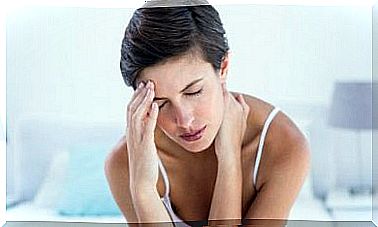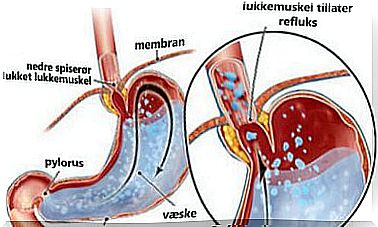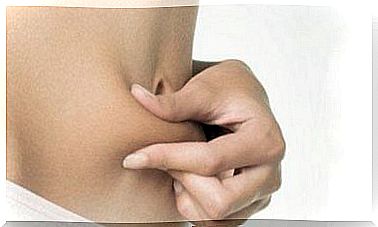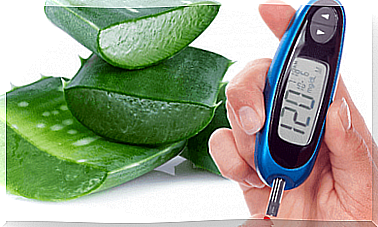What Can You Do About Painful Ovulation?
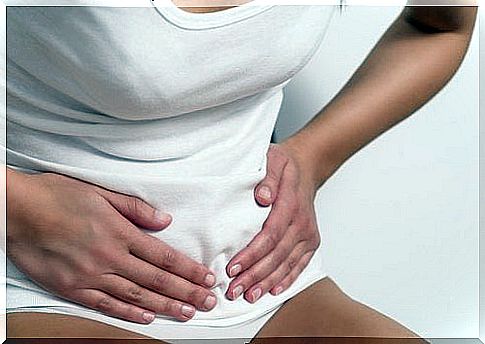
Painful ovulation is one of the most serious causes of discomfort in women of reproductive age. The pain comes as cramps in the abdomen. For most of us, this problem can be a real nuisance because the pain can be so severe and acute. Some women may experience pain in the groin or thigh area, which may prevent them from performing even the simplest tasks.
This is a very common disorder. Do not ignore this if it is accompanied by other symptoms. We recommend that you talk to your doctor if you notice anything out of the ordinary.
In today’s article, we will help you deal with the terrible effects of painful ovulation that can come from many different causes.
What is ovulation?
Ovulation is the process by which the ovaries release a mature egg that is ready for fertilization.
This process usually occurs between the second and third week of the menstrual cycle. However, it can vary depending on the woman’s hormone level.
Ovulation occurs in three phases:
- Follicular : This begins on the first day of menstruation. At this point, the small, bag-shaped pocket where the egg is to be stored will develop. This pouch, once developed, promotes the production of estrogen.
- Ovulatory : This happens within the next 36 hours. As estrogen levels increase and produce the secretion of enzymes, the egg matures and is released. During this stage, the contractions of the uterus begin which are responsible for the pain you are feeling.
- Post-ovulatory : After ovulation, the corpus luteum occurs . This secretes the hormone progesterone. If the egg is not fertilized, the corpus luteum breaks down and causes the blood vessels to rupture. With this begins your next menstrual cycle.
Feel your body
It is very important to understand your menstrual cycle. While it may seem obvious, some women simply do not pay attention to it.
Your menstrual cycle can vary two to three days out of each month without triggering an alarm. However, if there are major changes, it is a good idea to visit your doctor.
Pay attention to symptoms
- Very intense pain, or pain lasting three days or more
- Burning sensation or pain during urination
- Fever or excessive sweating
- Vomiting or nausea
All this is a sign that something is wrong. Thus, you should see a doctor as soon as possible.
Recommendations for relieving a painful ovulation
Below are some recommendations for relieving menstrual cramps:
Try to relax
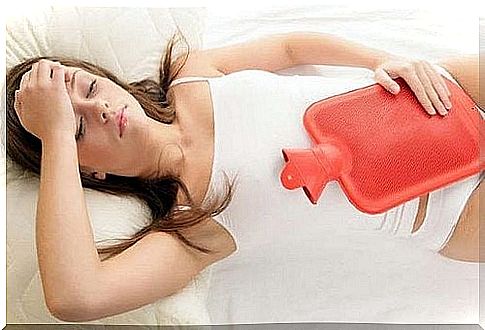
Adding muscle tension to the cramps produced by ovulation only aggravates your pain. However, stretching will relieve pain in your body. In addition, you can also try some yoga poses, which will help you release some tension.
Drink hot teas
In addition, the anti-inflammatory and relaxing properties of chamomile and honey can give good results.
Ingredients
- 2.5 dl with water
- 1 tea bag or 1 teaspoon chamomile (10 g)
- 1 teaspoon honey (7.5 g)
Preparation
- First, add the chamomile to the cup of boiling water along with a teaspoon of honey.
- Let it steep for five minutes and drink the tea slowly.
Apply hot compresses
Heat helps to relax the muscles and increase the circulation in the stomach.
Take a hot shower

In addition, hot water has a calming effect, because the heat soothes the nerve endings in your body. Heat also releases endorphins, a neurotransmitter that is responsible for relieving pain.
Avoid drinking caffeine
Caffeine has been shown to block blood vessels, increasing sensitivity to pain.
Take painkillers

Try some painkillers that you can buy without a prescription at the pharmacy such as ibux or paracetamol. These are responsible for inhibiting the production of prostaglandins, a substance that generates contractions of the uterus and results in pain.
If home remedies and painkillers are not enough to relieve painful ovulation, you should consider prescription birth control pills for your hormonal cycle. These have been shown to be very effective in treating painful ovulation.
Don’t let the pain get the best of you!
Despite how annoying it can be, the symptoms and pain of ovulation are things that women deal with on a monthly basis. For some women, however, their menstrual cycle goes almost unnoticed.
However, always be aware of any changes that you do not consider normal. After all, prevention has always been the best way to avoid major problems.
Remember to visit your gynecologist regularly, because it is important to keep your health in order.




